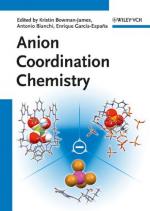|
This section contains 517 words (approx. 2 pages at 300 words per page) |

|
An ion is a molecule of atom that carries a net positive or negative electric charge, that is it is not electrically neutral. The word ion is Greek, meaning the ones that move. A neutral atom has equal numbers of protons and electrons, as does a neutral molecule. If an atom or molecule has a deficit or excess of electrons then it becomes electrically charged. Positive ions, cations, are formed when neutral molecules or atoms lose valence electrons and negative ions, anions, are those that have gained electrons. The process by which atoms or molecules become electrically charged is called ionization and can be induced by radiation, such as x rays or light with sufficient energy to rip electrons off of the valence shell, or by fast-moving particles, like those emitted by radioactive materials.
Typical levels in the atmosphere in the year 2000 are 3,000 cations and 4,000 anions per cubic...
|
This section contains 517 words (approx. 2 pages at 300 words per page) |

|


